arte, 13.00
Wine thrives on the green hills of north-eastern Hungary. In the late harvest, a golden-yellow wine is produced here that has gained fame beyond the borders since the 16th century: Tokaj. The sweet wine soon served as a diplomatic instrument, soon as a weapon in the fight for independence and as a national emblem. For centuries it was served at the table of every important European court. Today, Tokay tells of the splendour of bygone times and of Hungary's eventful history.
hr television, 8.15 p.m.
Experience the Rheingau in a unique way from above in a gyrocopter, paddle on the Rhine in a big-board or walk through the Rheingau with a glass of wine with the new concept "Walk like a local". These are just three things Tobi Kämmerer discovers together with the audience. Because he wants to find out: What does the Rheingau have to offer as a holiday region besides its wines?
3sat, 11.45 a.m.
Six modern countrywomen, a vintage bus travelling through Rhineland-Palatinate and Baden-Württemberg and delicious menus with regional ingredients - that is the recipe for success of "Lecker aufs Land". This episode takes us to the Palatinate to Sonja Merkel. Sonja knows as much about wines as she does about balance sheets. The 37-year-old not only runs a small but fine winery with her husband, she is also the chairwoman of the supervisory board of the regional cooperative bank. After graduating from high school, she studied trade management and then worked as a management consultant in the wine industry, for example for six months at a winery in Canada. Today, she can use her experience on the family winery and in her banking activities. Together with her husband, she loves to produce wine cuvées with heart and soul. This is a tradition in France, and Sonja and her husband want to inspire wine connoisseurs in Germany as well. The two of them are passionate about what they like: on the winery, for example, they make a liqueur from Dornfelder and Arabica beans. The mother of two little boys has let her creativity come into play in the menu she serves to the five countrywomen. So wine is not neglected in her menu either and is reflected in the strong taste of the "Boeuf Bourguignon" as well as in the "Trilogy in Red" of the dessert.
hr television, 10.35 a.m.
The film introduces people who bring the special features of the islands closer: a biologist who works for the national park "Tuscan Archipelago"; a handbag designer; a singer whose father was an opera star; a beekeeper and former professional cyclist as well as a vintner who grows the typical sweet wine of Elba.
arte, 5.20 p.m.
Greeks, Egyptians, Romans, Ottomans and British have landed here. And today also the reporter Sineb El Masrar. First she travels to the Troodos Mountains and meets winemaker Lefteris Mohianakis and his wife Kristina, who have realised a lifelong dream here. Sineb tastes the Greek-Cypriot couple's award-winning dessert wine.
ARD-alpha, 6.40 p.m.
It is decorative, provides shade and, with a little skill, produces tasty grapes every year: If you want to plant vines, you can try your luck in northern Germany.
ZDF, 10.15 p.m.
The longest mountain range on earth stretches along the west coast of South America. The Andes run through seven countries and form a cosmos of their own with traditions thousands of years old. In the Argentinian province of Jujuy, Claudio dreams of creating the best red wine in the world at 3,600 metres in the highest wine cellar in the world, hidden in an old mine. "From the womb of Pacha Mama, Mother Earth," as Claudio says. "Here the wine is in silence, in tranquillity, it is the essence of peace."
hr television, 10.05 a.m.
After massive Corona-related drops in tourist numbers, South Tyrol has been intensively courting visitors from abroad, especially from Germany, since the spring of 2020. "South Tyrol is enjoyment and closeness to nature: alpine and Mediterranean, has Dolomites and vineyards. South Tyrol speaks German, Italian and Ladin, holds fast to its tradition and unites it with the present," were the words of large-scale advertising campaigns. About 40,000 jobs in the autonomous province depend directly or indirectly on tourism, including vintners and fruit growers who supply local hotels and restaurants.
3sat, 10.15 a.m.
The Jura south foot line is one of the most beautiful railway routes in Switzerland. Along the French and German language border, the journey continues along the western shore of picturesque Lac Léman to Geneva. From the Dreiseenland, the train heads south to idyllic Lavaux, Switzerland's best-known wine region. Between Vevey and Morges, the journey continues for a short stretch by boat across Lac Léman. The last stage to Geneva is then by train again. Heading south, the train meanders leisurely through the Fribourg region. After the tunnel at Puidoux, a magical sight opens up to the train passenger: The vineyards of Lavaux in the foreground, Lake Geneva shimmering blue behind, and the snow-covered slopes of Mont Blanc in the distance. The vineyard terraces of Lavaux have been a UNESCO World Heritage Site since 2007. Christelle Conne's family has run a vineyard here for generations and allows the film team a look behind the scenes.
ZDF info, 6.45 p.m.
Germans love wine. Especially when it is cheap. Almost half of all wine is now sold in discounters. Wine production and sales are a global business. With downsides for the environment and workers. The most popular imported wine from overseas is wine from South Africa. Good and cheap - that is the image. But the strong pressure on prices creates untenable conditions on South African wineries. Wine from Bordeaux is also appreciated in Germany. Germany imports about 15 million litres a year. However, many French winegrowers achieve good quality only with pesticides that can still be detected in the wine. In Germany, too, the image cultivated by winegrowers of a noble, pure drop is only part of the reality. For in addition to pesticides in the vineyard, more than 50 additives may now be used in the wine cellar after the harvest. By no means all of them are considered harmless. The documentary by Anna Fein, Erik Hane and Stefan Hanf explores the consequences of the globalisation of the wine market for people and nature. The authors are on the trail of the darker sides of wine. They research the working conditions at South African wineries. They talk to scientists about the use of chemical-synthetic pesticides and fining agents in viticulture. They visit an organic winegrower in the Bordeaux region who tries to produce high-quality wines in the most natural way possible.
DMAX, 23.15
In this episode the "Master Distiller" candidates are to distil grappa. The first written references to the popular spirit date back to the 13th century. The "moonshine of Italy" was originally a drink for poor people and is made from the press residue of wine pressing. Mark Ramsey and his buddy "Digger" Manes have also distilled grappa. The two members of the expert jury know what it takes to get the job done. Competitors from all over the USA compete in the art of distilling in this series. Experienced professionals look over the contestants' shoulders as they distil schnapps. Tim Smith, Mark Ramsey and "Digger" Manes have learned the craft from scratch. The "moonshiners" know all the tricks. What equipment do you need to make high-proof alcohol? What do you have to pay attention to when preparing the mash and which ingredients give the schnapps a good aroma? The participants of the Challenge have to master various tests - and the best candidates will be awarded the title of "Master Distiller".
3sat, 4.00 p.m.
Alsace is mainly rural. It is noticeable that people know each other. In the villages, the dialect is often still alive, for example in Seebach, one of the most beautiful half-timbered villages in Northern Alsace. There the film team visits a German-French winegrowing couple who produce organic wine and crémant.
Bavarian Television, 11.00 a.m.
Axel Bulthaupt embarks on a journey around Lake Garda in a new episode of his series "Sagenhaft". He experiences a landscape with magical images that have never been seen before. A film with spectacular shots from the air. Bulthaupt meets people who have left their mark on the land, such as the winegrower from whose grapes not only the famous Amarone is pressed, but who also has his own wine museum with an olfactory gallery.
3sat, 11.55 a.m.
Radicchio farmer and winemaker Sandro and organic farmer Mauro, an eco-hippie, are friends - although they are very different. Both have to survive, even though business is getting tougher. Since prices have collapsed, Sandro and Mauro want to work together to market their products. Together they come up with a concept for direct sales, so that they can sell wine and sausage at their own stalls at weekly markets and public festivals.
arte, 5.50 p.m.
Sustainability is a big issue in small Luxembourg. The densely populated country is attracting more and more people, so it is important to bring economy and nature conservation together. In the vineyards of the Moselle region, winegrower Corinne Kox is also experimenting with methods to make winegrowing more sustainable.
Bavarian Television, 12.25 p.m.
The origins of Montpellier in the south of France go back to the 10th century. Visitors come for the wine, the culture and the climate.
hr television, 10.35 a.m.
The film author Ulrike Becker was on the road for three weeks and sketched a portrait of the Aeolian soul in many small encounters. On Salina she meets the passionate winemaker Nino Caravaglio, who produces Malvasia wine.
3sat, 11.45 a.m.
On his foray through Europe, Lojze Wieser and Martin Traxl explore south-eastern Styria, where they find a unique wealth of natural and cultural landscapes. The fertile volcanic soil offers optimal conditions for viticulture, elderberry plantations and the almost forgotten orchard meadows where old apple varieties are cultivated.
arte, 19.40
Species extinction does not only affect animals: In the 20th century, three quarters of crops disappeared. This makes agriculture even more vulnerable to climate change - and thus to crop failure. In this episode of Roots, science journalist Pierre Girard meets Mathieu Deiss in Alsace and Mario Di Bartolomeo in southern Italy. Winemaker Mathieu grows mixed grape varieties - contrary to the guidelines for quality wine. They protect each other, he says, and thus replace fertiliser and pesticides.
3sat, 5.30 pm
From Avignon it is only a Katzensprung to the famous wine-growing region of Châteauneuf-du-Pape in the southern Rhone Valley.
Bavarian Television, 7.30 p.m.
Seven countrywomen from seven Bavarian districts meet to get to know each other and cook for each other. The women judge each other and at the end the overall winner is chosen. With their form of farming, Josefine Reißaus (58), called Fini, and her husband Matthias have found a way to combine species-appropriate animal husbandry, nature conservation and economic livelihood.
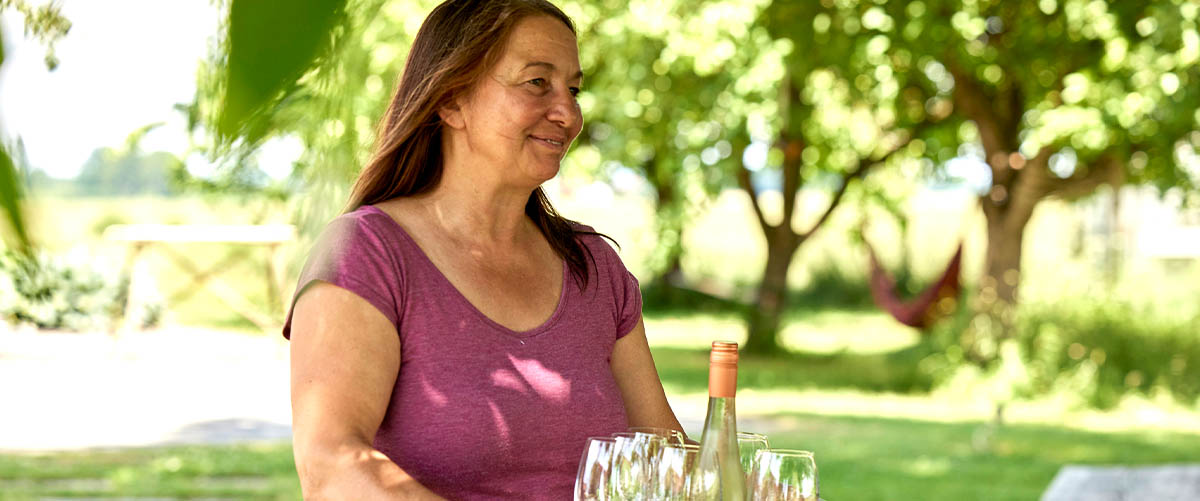 |
3sat, 1.15 p.m.
30 kilometres down the Danube, in the middle of the Wachau, lies the Fischer vineyard. It is home to the "Huchen-Peppi". Josef Fischer looks after the population of the now rare fish species huchen. He does this out of his own interest, because he likes to eat the imposing "Danube salmon". The retired winegrower is a contented man. This is certainly due to his pension, a supplementary pension of 365 bottles of wine per year, which he receives from his son, but also due to the place where he lives: "The Danube is a wonderful, mighty river. I am happy every day that I am at home here."
WDR Television, 4.00 p.m.
With a population of around 107,000, Bolzano is the capital of South Tyrol. Surrounded by large wine-growing areas and apple orchards, the impressive Dolomites tower between the Alps.
SWR Television, 12.15 p.m.
Henriette Richter-Röhl has to deal with strokes of fate as the junior boss: first she loses her beloved father, then there is a dispute about the inheritance and finally the traditional family business is on the verge of going out of business. Alone, she fights against the selfish interests of her relatives, played by Leslie Malton and Max von Pufendorf, and the takeover by her father's arch-enemy.
SWR Television, 5.15 p.m.
Countrywoman Maren Bornheimer-Schwalbach from Rheinhessen is the third participant in the SWR gardening competition. Viewers accompany the vintner and pig farmer from spring to autumn as she sows, tends, harvests and cooks. Maren Bornheimer-Schwalbach faces three exciting challenges: She creates raised beds, cultivates sweetcorn and serves her fellow contestants a two-course garden menu in autumn. Will she be able to win the friendly competition?
3sat, 11.45 a.m.
Marian and Juan Carlos Sancha are hobby winegrowers and run a small family bodega in the Spanish region of La Rioja. The autumn grape harvest is the highlight of the year for them. Juan Carlos takes care of everything to do with the wine, Marian and her mother-in-law look after the physical well-being of the harvest workers. They cook hearty dishes: Caparrones a la Riojana and Pimientos Rellenos. After the grape harvest, they celebrate. Rioja - everyone knows the dry, dark red, spicy wine from Spain. It is named after the smallest autonomous region in the north of the country: La Rioja. It is divided into the upper and lower Rioja: The upper part is in the humid, mountainous highlands where the wine is grown and processed. The lower part is located in the fertile plains of the river Ebro. It is mainly used for growing vegetables. Its location on the Way of St. James shaped the region, and its towns gained importance as pilgrimage sites in the Middle Ages. Juan Carlos Sancha lives with his wife Marian and their four-year-old twins in Baños, a village in the Rioja Alta region. Juan Carlos' grandfather bought a small vineyard here almost 100 years ago and planted vines. Juan Carlos and Marian are now continuing this tradition: they are hobby winemakers and run a small family bodega. But Juan Carlos has also turned the hobby into his profession: he works as an oenologist at the University of Logroño, the regional capital, where he researches the preservation of old wine varieties and teaches students the art of making and tasting wine. In their bodega, he and Marian make about 24,000 bottles of wine. That's not much compared to other family bodegas that produce at least 100,000 bottles.
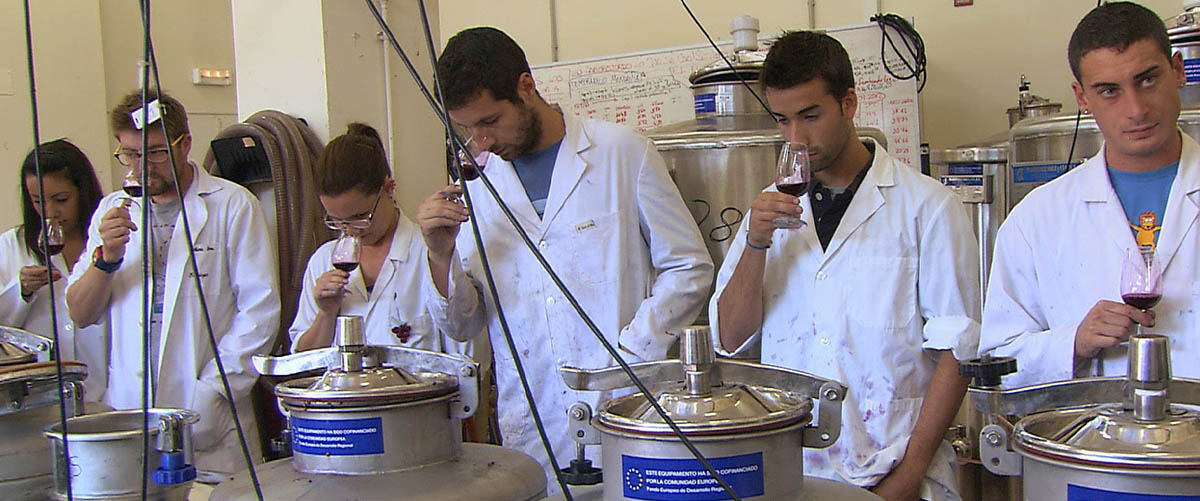 |
Bavarian Television, 2.25 p.m.
Kathrin Mayer is on her way along the Main cycle path from Schweinfurt to Aschaffenburg: In Miltenberg she attends a performance in the world's smallest theatre and then dines in Germany's oldest inn. She gets into a floating knight's castle on the river visits a vineyard: in Erlenbach she is poured a Burgundy.
3sat, 4.45 p.m.
The film author Monika Birk discovers the Baden way of life in the Black Forest metropolis and beyond. For right on Freiburg's doorstep lies the Kaiserstuhl region with its idyllic winegrowing villages.
hr television, 8.15 p.m.
It is one of the oldest tourist roads in Germany and runs for over 80 kilometres through the wine-growing region of the Palatinate - the German Wine Route. It goes without saying that the hr morning show host, Tobi Kämmerer, wants to know what there is to experience here. Wine lovers get their money's worth on the German Wine Route. But not only! Besides wine, there are romantic winegrowing villages, beautiful nature and an unbeatably mild climate. The Palatinate is not called the Tuscany of Germany for nothing. And Tobi meets young people with creative ideas here and gives tips on what should definitely not be missed.
3sat, 11.50 a.m.
Six modern countrywomen, a vintage bus on a journey through Rhineland-Palatinate and Baden-Württemberg and delicious menus with regional ingredients - that is the recipe for success of "Lecker aufs Land". Rita Sester serves the five other women a harmonious menu with products from her own farm at her wine-growing farm in Gengenbach-Reichenbach. Among other things, there is a very thinly sliced, cold saddle of venison with Mediterranean grilled vegetables as a starter. The Black Forest farm of Rita Sester and her husband Thomas is surrounded by orchards and vineyards. Thomas' father gave up the unprofitable dairy farming on the farm over 30 years ago. Since then, a herd of fallow deer and red deer has populated the slope and the meadows around the house. Ninety Ziparten trees provide the fruit for the famous "Zibärtle" - a Black Forest speciality that Thomas distils himself in the farm's own distillery, along with other fine brandies. The family delivers the grapes to the local winegrowers' cooperative. Son Christian is a master carpenter and can imagine taking over the business. The family is increasingly focusing on new tourism concepts. For example, the Sesters offer "sleeping in the orchard", an adventure holiday in nature. For this purpose, they have converted two barrels into sleeping and living oases.
SWR Television, 5.15 p.m.
Marcus Quint starts the SWR gardening competition: He cultivates a 500 square metre home garden in Bingen and has a soft spot for exotic flowering plants such as Californian tree poppies, spurge plants and passion flowers. He wants to prove his talent as a gardener in the SWR gardening competition. He grows sun-hungry vegetables like tomatoes and peppers in pots on the south side of his house. in spring he gets a task from the SWR expert. He has to grow healthy plants with magnificent corn cobs from sweetcorn seeds until autumn. Twice during the four-month filming period, SWR gardening expert Dr Michael Ernst visits the amateur gardener. The second time, he awards points for tomatoes and peppers on the house wall and for the sweetcorn project. At harvest time, Marcus Quint invites his fellow gardeners and serves a two-course menu. Can the amateur gardener beat countrywoman Rita Vitt's score with his vegetarian menu?
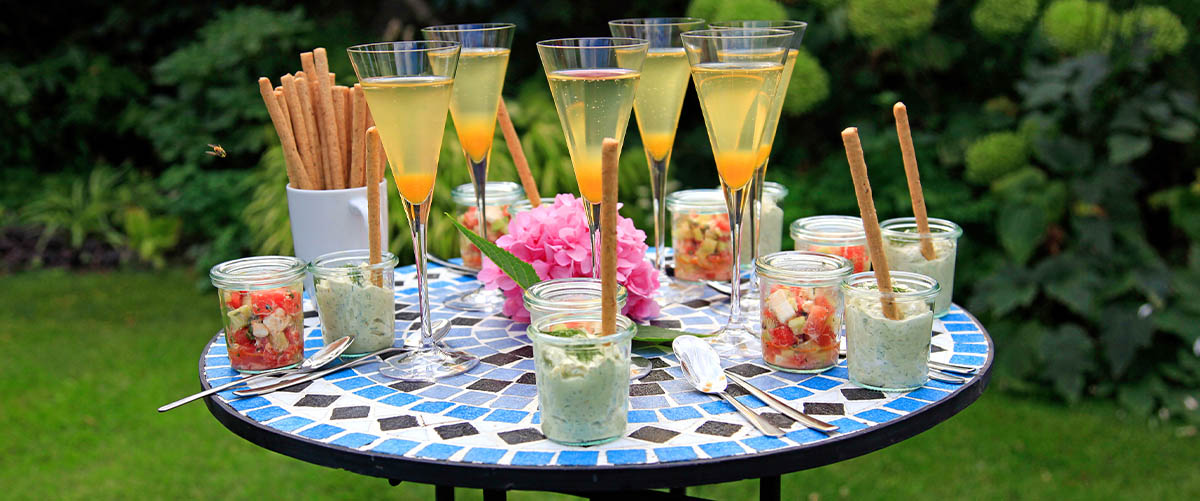 |
3sat, 9.05 p.m.
For decades, Burgenland was regarded as an economic problem child: bordering Hungary, it was cut off from trade and innovation for decades by the Iron Curtain. But that was yesterday. Burgenland is looking to the future with vision. It is also home to a winegrower who stores his wine not in his cellar but in Lake Neusiedl.
3sat, 21.45
Wine culture, hiking, an exciting history and a lively everyday culture: the Siebengebirge has a lot to offer. - The film takes us from the Drachenfels to the Mannberg. The members of the Belz family have been growing their wine as organic winegrowers on the steep slopes of the Mannberg near Unkel on the Rhine since the 1990s. The small town also serves as a starting point for hiking tours and is home to the Willy Brandt Forum. Other stops on the journey through the Siebengebirge are the wine-growing town of Bad Honnef-Rhöndorf, the residence of former German Chancellor Konrad Adenauer and a picturesque attraction for day-trippers, and the Drachenfels.
hr television, 10.35 a.m.
On Lanzarote, countless volcanic eruptions have formed a bizarre lunar landscape. Winning enough food from the karstic, dry soil is a great challenge for the inhabitants. Nevertheless, they even manage to produce wine.
SWR Television, 12.15 p.m.
Henriette Richter-Röhl alias Anne Wader can't leave the Wader vineyard behind so easily: When the Palatinate organic winegrower learns of difficulties in the family business, she immediately rushes to help. The heavy suspicion of deliberately driving the tradition-rich winery into ruin falls on her successor and even on relatives. Moreover, the decades-long conflict between the two Wader patriarchs weighs on the family clan like an evil curse. When Anne uncovers a secret about her late father, her Uncle Bruno's family breaks up. The boundless rage of her cousin (Kyra Sophia Kahre) also has severe consequences for Anne. In the second film of the family saga, the new life the organic winegrower is building threatens to collapse again.
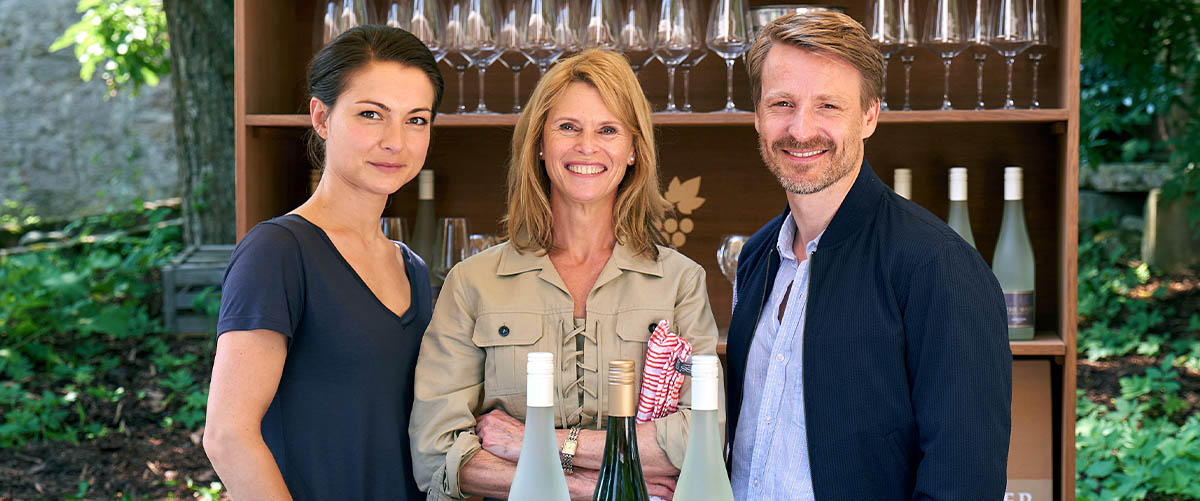 |
3sat, 4.15 p.m.
In contrast to the south of the US state, the north of California is rather unknown. Filmmaker Jörg Daniel Hissen travels along the Pacific coast of Northern California. He meets people who represent California's attitude to life. The Mexican immigrant and winemaker Ulises Valdez tells how the American dream came true for him.
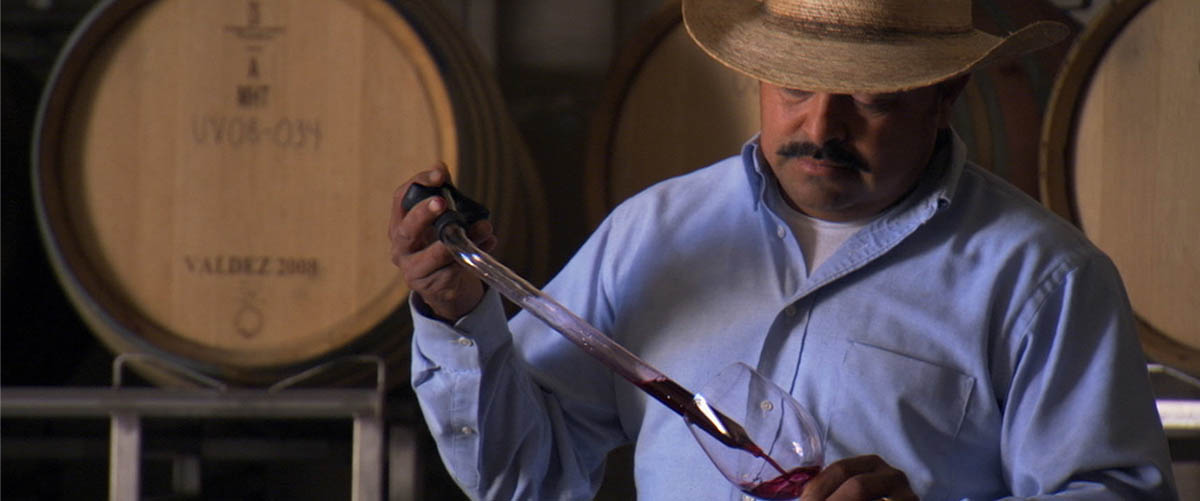 |
3sat, 8.15 p.m.
Between legendary castle ruins, opulent monasteries and renovated hilltop castles - from the Wachau to the Mostviertel, old walls have been breathed new life into again and again.
3sat, 21.00
World history can be felt in every corner of the houses: the lords and ladies of the castles of the Weinviertel and the Czech border region bear witness to the need to stage history and make the past tangible in painstaking detail. The filmic journey through the stately homes of the Weinviertel and the south of the Czech Republic begins at Kreuzenstein Castle. The once medieval castle of the Habsburgs was completely destroyed in the Thirty Years' War. In the 19th century, the ruins came into the possession of the polar explorer Count Johann Nepomuk Wilczek. In 1874 he had it rebuilt into a neo-Romantic show castle and a place for his extensive art collections. Still owned by the Wilczek family, the house has also been a popular film set since the beginning of the 20th century. Afterwards, the houses of the Liechtenstein family on the Austrian-Czech border will be visited. Wilfersdorf Castle has been continuously owned by the princely Liechtenstein family since 1436. It is home to a museum on the family history, the princely court wine cellar and the administrative headquarters for the princely family estates in Lower Austria. Castle administrator Hans Huysza leads us through the simply structured, baroque residential castle and the Liechtenstein Museum he has built up over decades of painstaking work. Grafenegg is the last stop on the cinematic journey. The present owner, Tassilo Metternich-Sándor, guides us through the most important palace complex of romantic historicism in Austria. A unique experience are the evening concerts on the futuristic open-air stage Wolkenturm in the middle of the 32-hectare landscape garden of the romantic four-winged complex.
3sat, 1.15 p.m.
From knight's castles to peace centres - the castles and palaces in southern Burgenland bear charming witness to the eventful history of Austria's south-eastern borderland. Alexandra Rieger has also found a new home in southern Burgenland. The soprano was invited by the internationally renowned opera singer Dietmar Kerschbaum to Neuhaus am Klausenbach, where she is taking care of the fortunes of Tabor Castle. Kerschbaum, whose roots lie in this idyllic seclusion in the border triangle of Austria-Hungary-Slovenia, has turned the former estate of the Batthyánys into a venue of high culture - the annual opera festival has long since become a fixture for international opera fans. Alexandra Rieger ensures that everything runs smoothly. She also lends a hand with the harvesting of the grapes on the vineyard at the foot of the castle. The reward for her labour: the notorious Uhudler wine of southern Burgenland.
3sat, 2.00 p.m.
They are landmarks and guard unmistakable culinary delights - the castles and palaces from Vulkanland to Schilcherland. Their stories are formative for Styrian identity. Committed to nobility - that is what the lords of the castles in these regions stand for. Whether as free-spirited winegrowers or as guardians of the world-famous Lipizzaner horses, they have all dedicated themselves to the tradition of their houses and led them into the modern age. The starting point of the cinematic journey from the Styrian Volcanic Land to the Schilcherland in Western Styria is the imposing Riegersburg, probably the strongest historical fortress in the Occident, which is still owned by the Princely House of Liechtenstein and is considered one of the most important tourist attractions in Styria. Prince Emanuel von und zu Liechtenstein has followed in his parents' footsteps and, together with his wife Sonja, has developed his own visions for preserving what is probably Styria's best-known castle. In western Styria in particular, distinctive wines and castle grounds are inseparably linked. Stainz Castle, the centre of Schilcherland, was once owned by the Styrian reformer Archduke Johann. He pushed the cultivation of the Blaue Wildbacher grape in the region and thus heralded the triumph of the typical West Styrian Schilcher wine, which is still cultivated today in the former experimental vineyard at the foot of the castle. Franz Meran, the great-great-great-great-grandson of the Archduke, is now in charge of the house. As a forester, he is a true nature boy and invites us to contemplate in his forest - the place where he feels most at home.
3sat, 2.40 p.m.
Stories about important noble families: the castles and palaces of Eastern Styria are full of them. The lords of the castles of today fit in seamlessly. The film from the series "Castles and Palaces in Austria" introduces them. In Eastern Styria, magnificent castles and fortified fortresses lie close together. One of them is Herberstein Castle, which has been in the possession of this important European noble family for 21 generations and has long since become a Styrian landmark with its magnificent gardens and the largest zoo in Styria.
3sat, 11.00 a.m.
It is one of the most beautiful spectacles of nature when the apricot trees in the Wachau begin to blossom in spring, transforming the entire region into a fragrant sea of blossoms. At 36 kilometres, the Wachau is only a short section of the 2800-kilometre-long Danube - and is a UNESCO World Heritage Site. The documentary shows the charms of this Austrian cultural and natural landscape in the changing seasons. The winding Danube valley, the riparian forests, rock formations and man-made vineyard terraces are UNESCO natural monuments. The Wachau is also known for its idyllic villages, its monasteries and castles. The Wachau has been wine country since Roman times - today the "Land am Strome" with its white wines can compete with any wine-growing region in the world.
3sat, 11.50 a.m.
Presenter Lojze Wieser and filmmaker Florian Gebauer meet people in this politically and culturally highly contested border region in the heart of Europe who transfer the old recipes into today. Among others, the film accompanies 28-year-old Catherine Hirsinger during the wine harvest, which lasts about six weeks. During this time, the entire family works almost around the clock in the vineyards or in the wine cellar.
arte, 4.30 p.m.
For decades, Burgenland was regarded as an economic problem child: bordering Hungary, it was cut off from trade and innovation for decades by the Iron Curtain. But that was yesterday. Burgenland is looking to the future with vision. Here lives a winegrower who stores his wine not in the cellar but in Lake Neusiedl.
3sat, 1.30 p.m.
Lake Garda is one of the most popular holiday regions in the south. It was already sung about in hit songs of the fifties, but the wildly romantic mountain scenery and the lemon trees on the picturesque "Riviera dei Limoni" also attract wine lovers to Italy's largest lake.
3sat, 11.50 a.m.
When Zeus, the father of the gods, wanted to take a holiday, he took the most wonderful fruit and the most delicious vines in Greece and gathered them on the Pelion peninsula in Thessaly. "At Table in... Thessaly" accompanies the Sarakatsanis family in their very own way of coping with the financial crisis in Greece.
Will Riesling still taste like Riesling in 2050? Climate change is taking its toll on vines and grapes. "plan b" shows how winegrowers are looking for ways to save their wine - and the climate at the same time. In the ZDFmediathek, the documentary "Edler Tropfen. The wine of tomorrow" by Cornelia Schulze and Thomas Mudersbach can be seen. The vineyards suffer from extreme heat and torrential rain. At the same time, wine production generates large amounts of greenhouse gases that contribute to global warming. The wine world and science are looking for solutions to this dilemma. Estate director Ralf Bengel bears responsibility at the world-famous "Schloss Vollrads" wine estate in the Rheingau. Over 27 generations, the noble lords of the estate, the Greiffenclau family, have cultivated a single grape variety: Riesling. And they want it to stay that way. But the weather extremes are attacking the vines. That is why the estate director is working with researchers from the nearby Geisenheim University. Their ambitious goal: to breed Riesling plants that can withstand climate change. Sicilian winemaker Arianna Occhipinti relies solely on the forces of nature. She does not irrigate her plants and trusts that they will root deeper and deeper until they get water from the soil. And all this in the very south of Europe, where a record temperature of 48.8 degrees Celsius was measured last summer. Nevertheless, producing their natural wine entirely without additives pays off - for them and for the environment. Winemaker Franz Wehrheim in the Palatinate is pursuing the goal of making wine completely climate-neutral. He seeks support from management consultant Helena Ponstein. She knows how wineries can improve their carbon footprint - for example, in the area of packaging. Packaging is responsible for more than half of the CO2 emissions in wine production.